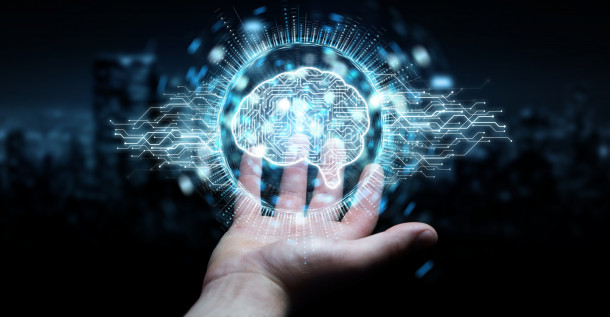Education & Career Trends: June 9, 2023
Curated by the Knowledge Team of ICS Career GPS

- Article by Arianna Huffington, published on linkedIn.com. Taken from the monthly ‘On My Mind’ LinkedIn Newsletter.
The Age of AI — which has been imminently imminent for decades — has finally arrived. From jobs and art to education, PowerPoint presentations and even dad jokes, the ways in which AI will impact our world are endless.
But in the growing debate around AI, there’s one possibility that’s not getting a lot of oxygen: the very big question of how we can use AI not just to perform things for humans but connect more fully with what it means to be human. AI is ultimately a tool, and its impact will depend on how humanity uses it.
The more we can use this moment to bring together a critical mass of people working in good faith and with empathy, the more likely it is that humanity will use AI to flourish.
Using This Time of Transition
As Bruce Feiler notes in Life Is in the Transitions, periods of disruption and transition offer unique opportunities for insight and wisdom. These periods of disruption involve stripping away what is non-essential and reaffirming what is essential. That’s what’s happening now. And that’s why I’m optimistic this moment will be a time of transformation and renewal.
By taking off our plate many of the mundane tasks that have consumed our time and attention for years, decades, or millennia, it’s possible that our essential humanity will be put into starker relief. With much of the noise taken away by AI, the signal will be more clear.
Discovering Our Full Humanity
As part of Apollo 8, William Anders was one of the first three humans to orbit the moon — and that meant he was also one of the first humans to witness an “earthrise.”
As he described it, “We came all this way to explore the moon, and the most important thing is that we discovered the Earth.” The same process could be happening now: as we’re expending enormous effort to make machines mimic humans, what we may well discover is what makes us uniquely human.
The metric of how closely we get machines to mimic humans is called the Turing test, or as Alan Turing called it in 1950, the “imitation game.” But in fact, we might be the ones failing the Turing test, by defining what it means to be human so narrowly, without encompassing the timeless, and our need to connect with something larger than ourselves.
We’re Wired To Connect
In The Awakened Brain, Dr Lisa Miller shows that we have “a natural inclination toward and docking station for spiritual awareness.”
But, as she points out, “we have to choose to engage it. It’s a muscle we can learn to strengthen, or let atrophy.”
In AI, a primary flashpoint is the so-called “alignment problem”: the challenge of encoding AI so that it aligns with human values and doesn’t cause harm. But as we tackle the alignment problem in AI, can we use AI to deepen and expand what we consider human values?
Onward Upward, Inward
How might this work?
We know that AI is quickly getting more and more sophisticated at diagnosing and giving us real-time information about our physical health. So if we widen the possibilities to include all aspects of our well-being, including our spiritual well-being, AI could be a Sherpa on our journey toward greater health and resilience: nudges on food, sleep, movement, stress and connection, but also personalised recommendations on sacred texts, poetry and quotes that help us reset and connect with that deeper place of peace, wisdom and strength we all have inside us. We know AI can do data, so why not use it for wisdom, too?
As Reid Hoffman, who has been a central figure in the development of AI, told The New York Times, a goal of AI should be “elevating humanity.” Part of that, Hoffman said, is using AI to improve our lives by “giving everyone a medical assistant” and “giving everyone a tutor.” And it could give everyone a spiritual guide, too!
The Point of Our Journey
Whether or not we believe in God, a higher power, or a benevolent universe, we’re all more likely to thrive when we disconnect from the world and answer our need to connect with something larger than ourselves. That’s a fundamental part of being human. And AI can be a tool to augment and deepen that aspect of our humanity.
“We can make these new things and we can journey with them,” Hoffman said.
And if we choose to, we can make that journey a more human experience.
As Joseph Campbell put it, describing the hero’s journey — the one we’re all on: “Where we had thought to travel outward, we shall come to the centre of our own existence.”
…
Have you checked out yesterday’s blog yet?
Education in the time of AI: 6 shifts the world needs to make
(Disclaimer: The opinions expressed in the article mentioned above are those of the author(s). They do not purport to reflect the opinions or views of ICS Career GPS or its staff.)




One Reply to “How AI Can Elevate Humanity”